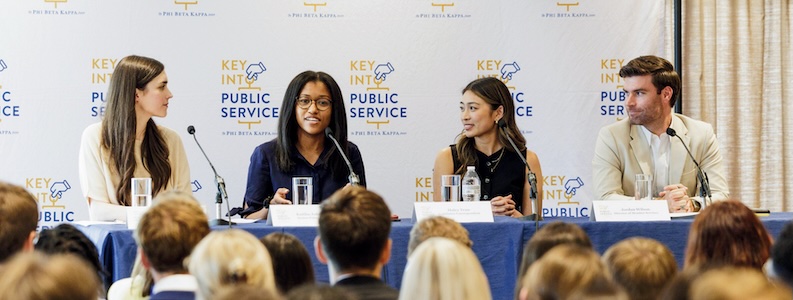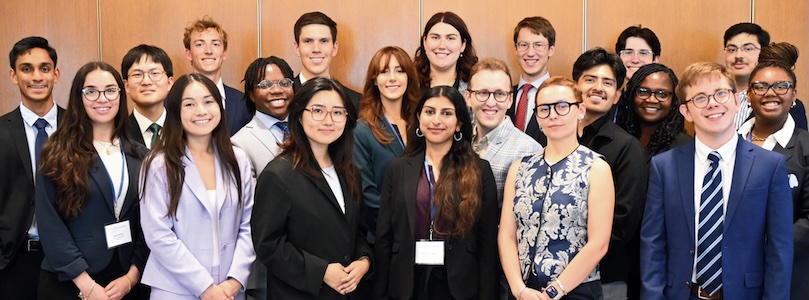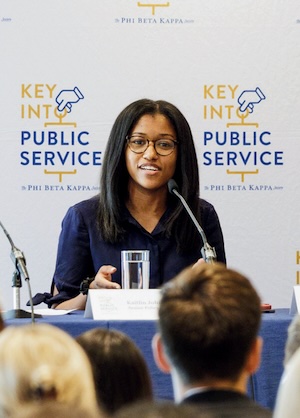Starting a career on Capitol Hill can feel daunting for arts and sciences graduates with multiple interests and few connections. In 2025, it also requires navigating polarization, institutional complexities, and public skepticism while striving to make an impact.
With generous support from the Gray Foundation, Phi Beta Kappa’s Call to Serve networking event held at the Library of Congress this summer shared real-world tips for interns, recent graduates, and young professionals looking to jump into or advance in congressional work. U.S. Congresswoman Lizzie Fletcher (ΦBK, Kenyon College) sponsored the event and welcomed the standing-room-only audience. “The gift of what you have received with a liberal arts education is how to think, how to question, how to make connections, and how to connect with others who are trying to do the same.”
Moderated by The Washington Post National News Reporter Justine McDaniel (ΦΒΚ, University of Puget Sound), the panel discussion featured advice from Kaitlin Johnson (ΦΒΚ, Marquette University), senior policy advisor for the Office of Senator Tammy Baldwin; Haley Tran (ΦΒΚ, UC Irvine) legislative correspondent for the Office of Representative Zach Nunn; and Jordan Wilson (ΦBK, George Mason University), director of Member Services, Modernization & Innovation for the Committee on House Administration. The wide-ranging conversation covered how unexpected coursework led to success on the Hill, the skills needed to navigate and improve bureaucratic systems, how to turn operational strengths into strategic roles, ways to prepare for and follow up on informational interviews, and the value of bipartisan relationships in a polarized time. The conversational insights offer a practical road map for anyone looking to build a meaningful and effective congressional career. You can watch the panel and access additional resources from our 2025 Key into Public Service conference at pbk.org/keyintopublicservice2025.


As we look to the fall and beyond, the Society will deepen our focus on how the liberal arts and sciences can strengthen democracy. We invite you to explore insights and use your degrees of influence to support the arts and sciences at this critical moment for higher education through our State of the Arts & Sciences e-alerts, programming, social platforms, and advocacy toolkit.




